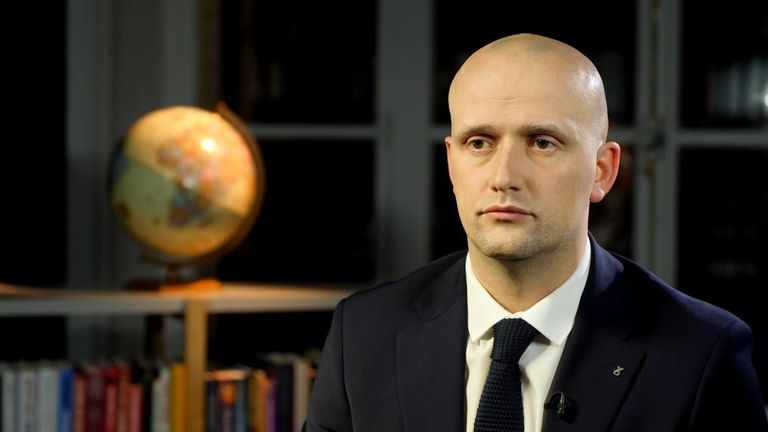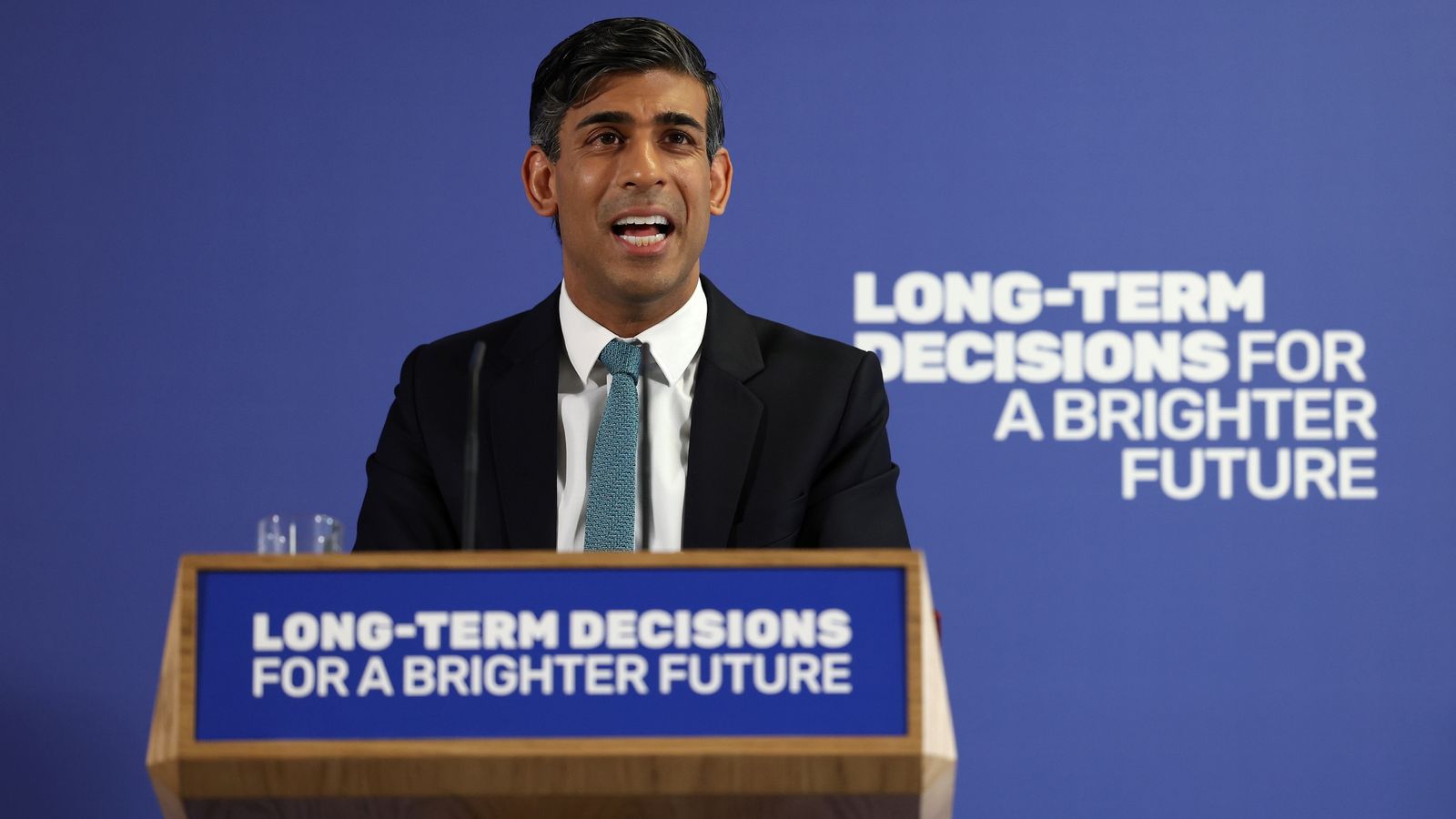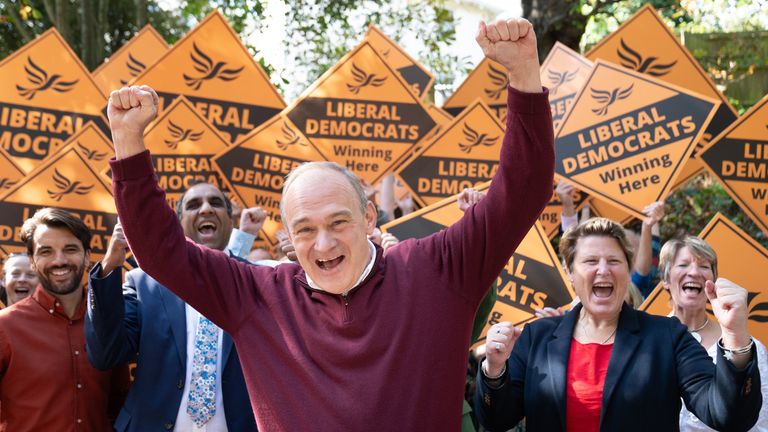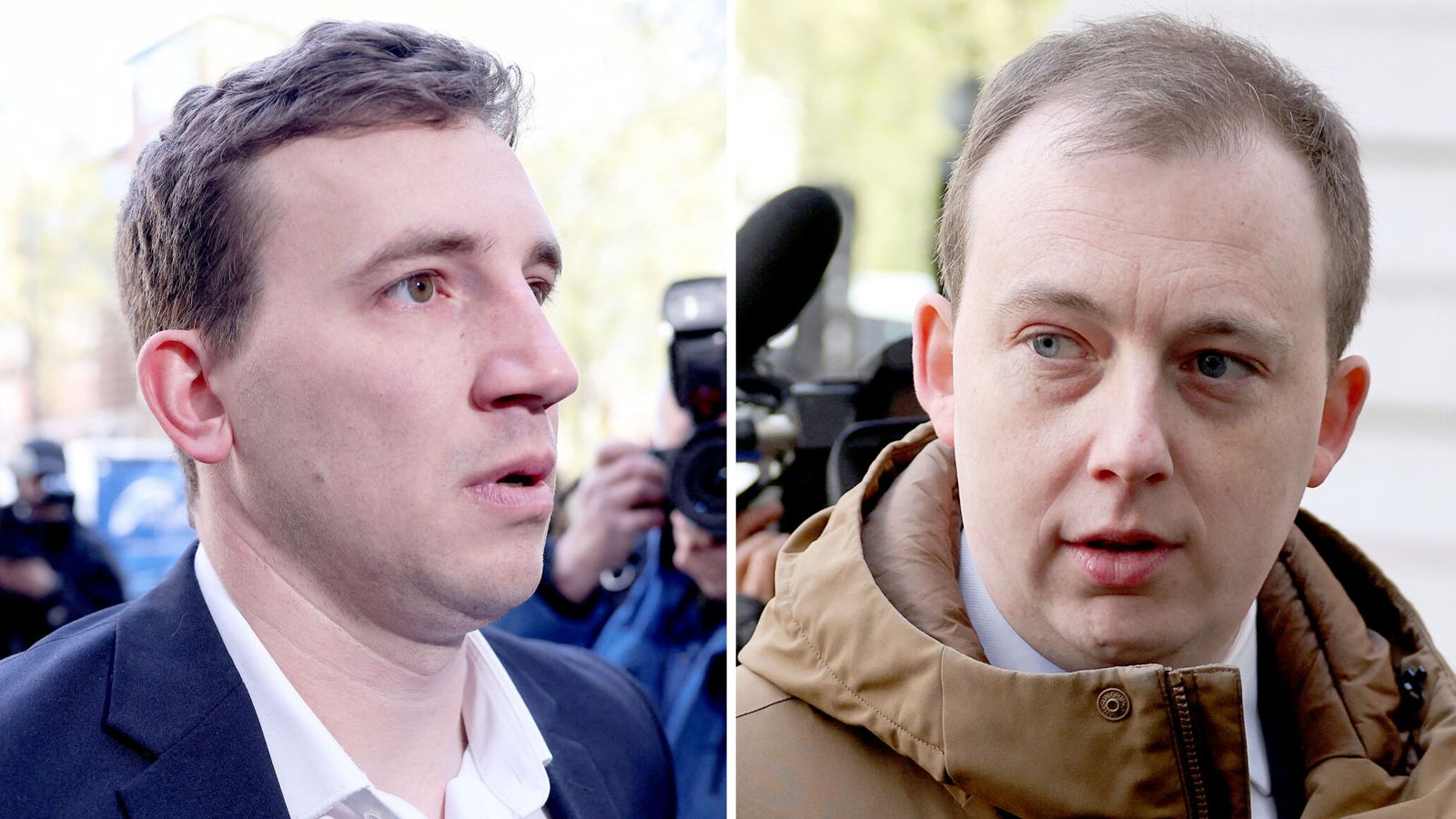
The Tories are facing criticism for “sneaking out” a plan to nearly double the amount that can be spent on election campaigning – in a move seen as giving an unfair advantage to the largest parties.
The UK’s election watchdog, the Electoral Commission, told Sky News it had “not seen evidence” to support the changes, which it said give “significantly more scope” for parties that attract the largest donations to campaign.
The new rules were pushed through via a Statutory Instrument on Monday and mean the national election spending cap on political parties will rise by 80%, to about £35m.
Politics news – latest: Why there’s a stealth tax lurking despite national insurance announcement
Previously parties were allowed to spend up to £30,000 for every constituency they contest, equating to £19.5m nationally if they stand a candidate in every seat.
The government said it made the changes to take into account inflation since the limit was last set in 2000, given the rising costs of things like printing and posting campaigning material.
However Liberal Democrat Peer Lord Chris Rennard said no party has ever reached the previous limit, with only the Tories coming close, and claimed the move will primarily benefit them as they tend to attract the biggest donations.
He told Sky News: “Under the (£19.5m) limit only the Conservatives have come close to spending the maximum, so this can only benefit the Conservative Party. The government is changing the rules in their favour.
“Yes there has been inflation but in the last elections there has not been a need to change the law, including 2019, and inflation has not gone up by 80% since then.
“It’s a sign the Conservatives are that desperate they want to spend that much money getting people to elect them.”
2019 spending
The Tories spent £16.5m on the 2019 election that saw them bolstered with an 80-seat majority under Boris Johnson.
Labour spent £12m, while the Liberal Democrats spent slightly more – £14.5m – after Lord David Sainsbury boosted their war chest with the largest donation in British political history (£8m).
Click to subscribe to the Sky News Daily wherever you get your podcasts
Lord Rennard said the increased limits will “handicap” smaller parties who won’t be able to raise as much money, as he accused the government of “avoiding parliamentary scrutiny” in order to enact the changes.
As well as increasing the election spending cap, the government has increased the threshold for when donations to political parties must be declared – from £7,500 to £11,180.
Read More:
Healthcare tycoon Hester swells Tory election warchest with £5m donation
Boris Johnson receives biggest donation to an MP on record after single contribution of £1m
Political parties secure more than £24m in donations over three months
‘Significant changes to UK’s financial controls’
The Electoral Commission said taken together the measures “represent significant changes to the UK’s political finance controls”.
They added: “The Commission’s research shows a long-term decline in public confidence in the political finance system.
“Any changes to spending or reporting thresholds must be supported by rigorous analysis, including on the likely impact on public confidence and transparency.
“The Commission has not seen evidence to support these changes. It is concerned that the proposals risk damaging the transparency of political donations, and gives significantly more scope for higher spending parties to campaign.”
There has long been debates around money in UK politics as highlighted by Sky News’ Westminster Accounts project.
Campaigners like Transparency International have argued for a cap on political donations and a lowering of the national spending limits to “end the dominance of big money in UK politics”, while others have called for reforms to how donations are declared.
In a written statement confirming the changes, levelling up minister Jacob Young said the campaign spending cap had not increased in more than 20 years and because of inflation the new uprates “are the same in real terms as the original limits set by parliament”.
He said: “The lack of change in absolute terms impacts campaigning ability given the increased costs of printing, postage and communication, which is vital for parties and candidates to engage with voters. For example, a second class stamp cost 19p in 2000; it is 75p today.”
On raising the donation reporting threshold, he added: “The purpose of these reporting thresholds is to provide transparency around the granting of larger donations, balanced with the administrative burden such reporting may create for the recipient and with the privacy of smaller donors.
“Uprating these thresholds will ensure that balance is maintained in line with the original policy and legislative intent of Parliament when setting the thresholds. Again, there is no change in real terms.”
Tories ‘importing US-style elections’
Labour are said to be relaxed about the higher spending limits while they court wealthy donors amid a healthy lead in the polls.
Pat McFadden, Labour’s campaign chief, previously told the Financial Times: “The Conservatives would not be doing this unless they thought it would give them an advantage.
“We take fundraising very seriously and we will be maximising our efforts.”
However it has concerned the Lib Dems, who are seeking to smash the Conservatives’ so-called blue wall at the next election.
Alistair Carmichael, the party’s home affairs spokesperson, said while the limits should increase a little it is “irresponsible is to increase them massively in one go without a consensus across the political parties” – saying the changes were passed with “no debate, scrutiny or vote in Parliament”.
“Public confidence in our democracy is only harmed by the idea that somehow it can be bought by the people with the deepest pocket,” he said on X, formerly Twitter.
He has urged the government to publish their evidence justifying their plans – calling the statement from the Electoral Commission “worrying”.
“In the past there have been concerns about the Tories importing US beef – perhaps we should have been more worried about them importing US-style elections. The last thing we need is that sort of unfettered campaign cash.
“If the government has good cause for these spending hikes then they should put forward their evidence for us all to see.
“If we cannot even have transparency about their plans to undermine transparency then there is no reason to trust that these changes are made in good faith.”













